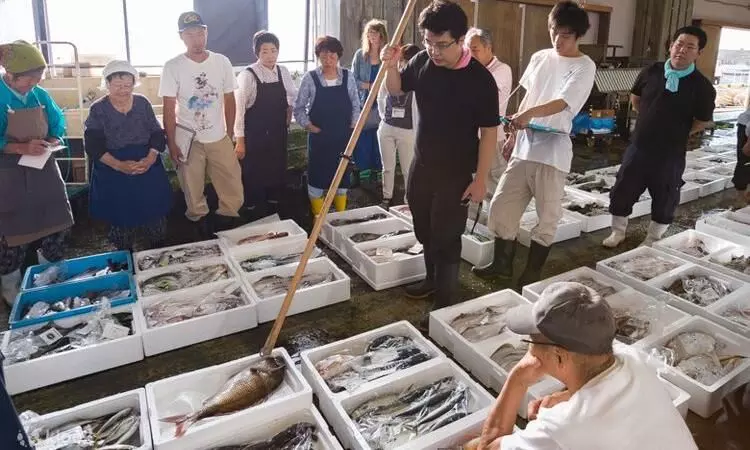
China threatens to extend seafood ban on Japan over Fukushima water release
text_fieldsBeijing: China has pledged to take "all necessary actions," including expanding the ban on seafood from 10 prefectures of Japan, over Tokyo's decision to release treated radioactive water from the Fukushima nuclear plant into the sea.
The ban will affect Fukushima and Tokyo as well.
The move comes after the United Nations nuclear watchdog granted Japan approval to discharge over a million metric tons of water, equivalent to 500 Olympic swimming pools, used to cool the plant's fuel rods after the 2011 tsunami disaster.
Quoting the General Administration of Customs, the South China Morning Post (SCMP) reported that China views the plan to discharge the water as failing to consider expert opinions fully. As a result, China will implement "all necessary measures" to ensure the safety of Chinese consumers, especially regarding the risk of residual nuclear contamination.
China's customs agency stated, "Since the Fukushima nuclear disaster in 2011, China's customs have attached great importance to the issue of radioactive contamination of Japanese food imported to China. It has closely monitored the relevant measures taken by the Japanese government, continued to assess the risk, and responded promptly." The agency emphasised its ongoing vigilance in safeguarding the Chinese market against potentially contaminated Japanese food.
Popular Japanese seafood exports including scallops and Japanese sake are widely enjoyed by Chinese consumers. Despite the nuclear accident, China remained the largest buyer of Japanese seafood exports in 2022, even though it, along with several other countries, imposes restrictions on imports from certain Japanese regions.
China has been the most vocal critic of Japan's planned water release, expressing concerns over its impact on marine life and human health. While China has not specified the exact measures it will take if the release proceeds, it has warned Japan to "bear all the consequences" of its actions.
The release is scheduled to commence in the coming weeks and is estimated to take up to 40 years.
The escalating tension between China and Japan over the Fukushima water release has raised concerns regarding the potential long-term impact on the seafood industry and bilateral relations between the two countries.























